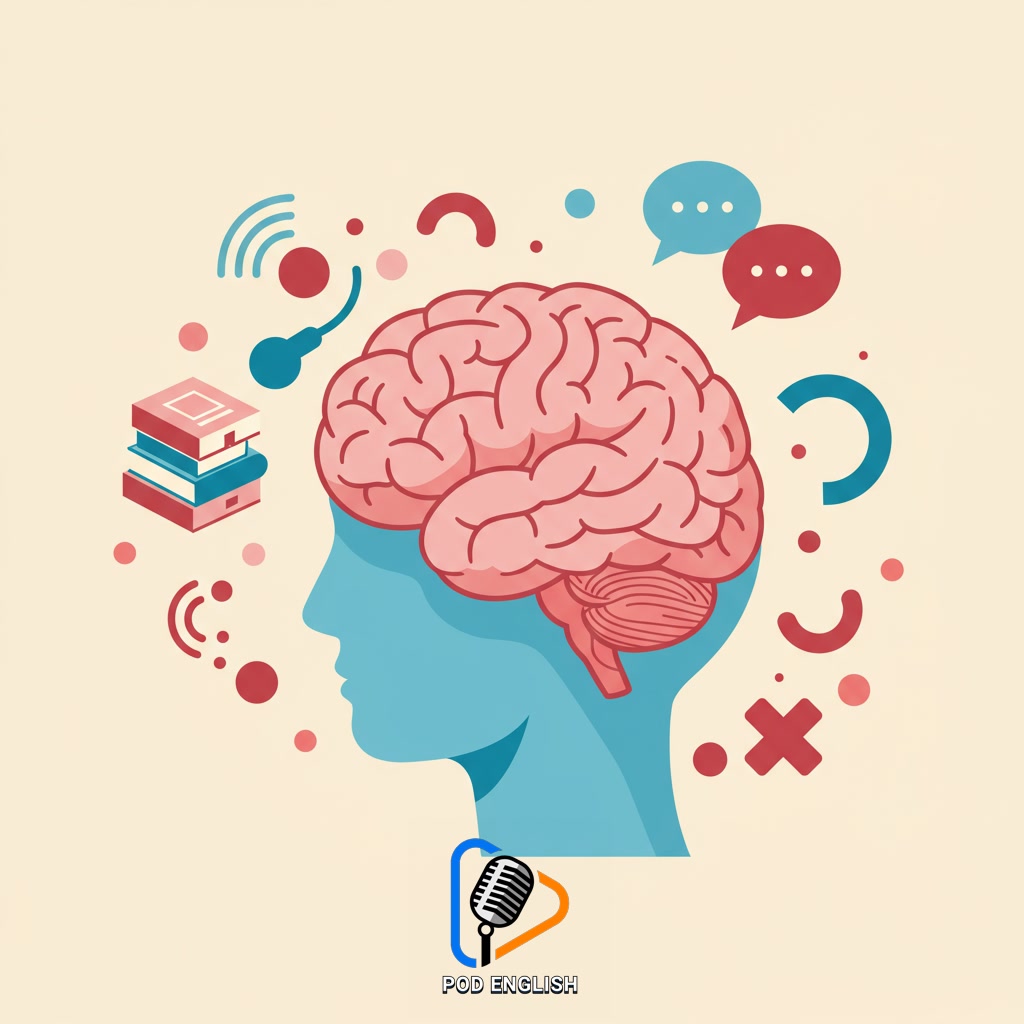Learn English
Boost Your Brain, Master English: The Omega-3 Way
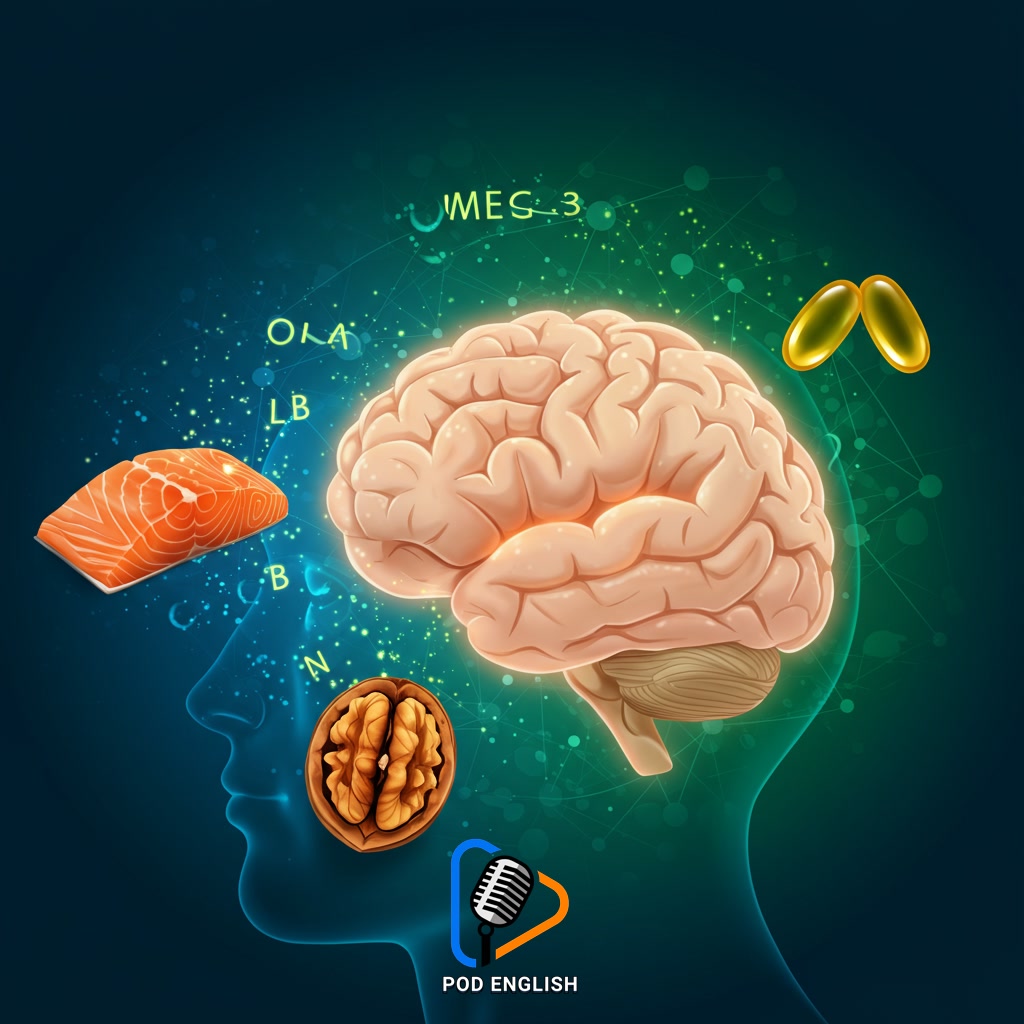
This content explores how Omega-3 fatty acids can improve cognitive function. Enhanced brain performance is crucial for effective learning, especially when acquiring skills like mastering the English language. It delves into the potential benefits of Omega-3 for memory, focus, and other processes vital for language acquisition. Understand how optimizing your brain health through Omega-3 intake could support your efforts in learning English.
Table of Contents
- Section 1: Introduction: The Brain-Learning Connection
- Section 2: Understanding Omega-3 Fatty Acids and Brain Health
- Section 3: How Omega-3s Specifically Enhance Cognitive Functions for Learning English
- Section 4: Key Benefits: Improved Memory, Focus, and Processing Speed for Language Acquisition
- Section 5: Incorporating Omega-3s into Your Diet: Sources and Recommendations
- Section 6: Combining Omega-3 Intake with Effective English Learning Strategies
Section 1: Introduction: The Brain-Learning Connection
Learning a new language, such as English, is a complex cognitive task that relies heavily on the intricate functions of your brain. Your brain is the primary engine for acquiring, processing, storing, and retrieving information, all of which are essential steps in mastering vocabulary, grammar, pronunciation, and comprehension. The effectiveness of your learning process is directly tied to the health and efficiency of this vital organ. When your brain is functioning optimally, you experience enhanced focus, improved memory retention, and a greater ability to make connections between new concepts. This foundational section explores the critical relationship between the state of your brain and your capacity to learn effectively, setting the stage for understanding how optimizing brain health can significantly accelerate your journey towards fluency in English.

Section 2: Understanding Omega-3 Fatty Acids and Brain Health
Building upon the understanding that your brain is vital for complex tasks like learning English, this section delves into a specific nutrient crucial for its optimal function: Omega-3 fatty acids. These are a type of polyunsaturated fat that your body cannot produce on its own, meaning you must get them from your diet. Omega-3s, particularly DHA (docosahexaenoic acid), are major structural components of brain cell membranes. They play a critical role in maintaining the fluidity and integrity of these membranes, which is essential for communication between brain cells. By providing the necessary building blocks, Omega-3s support the overall health and efficiency of your brain, laying a stronger foundation for cognitive processes involved in language acquisition.
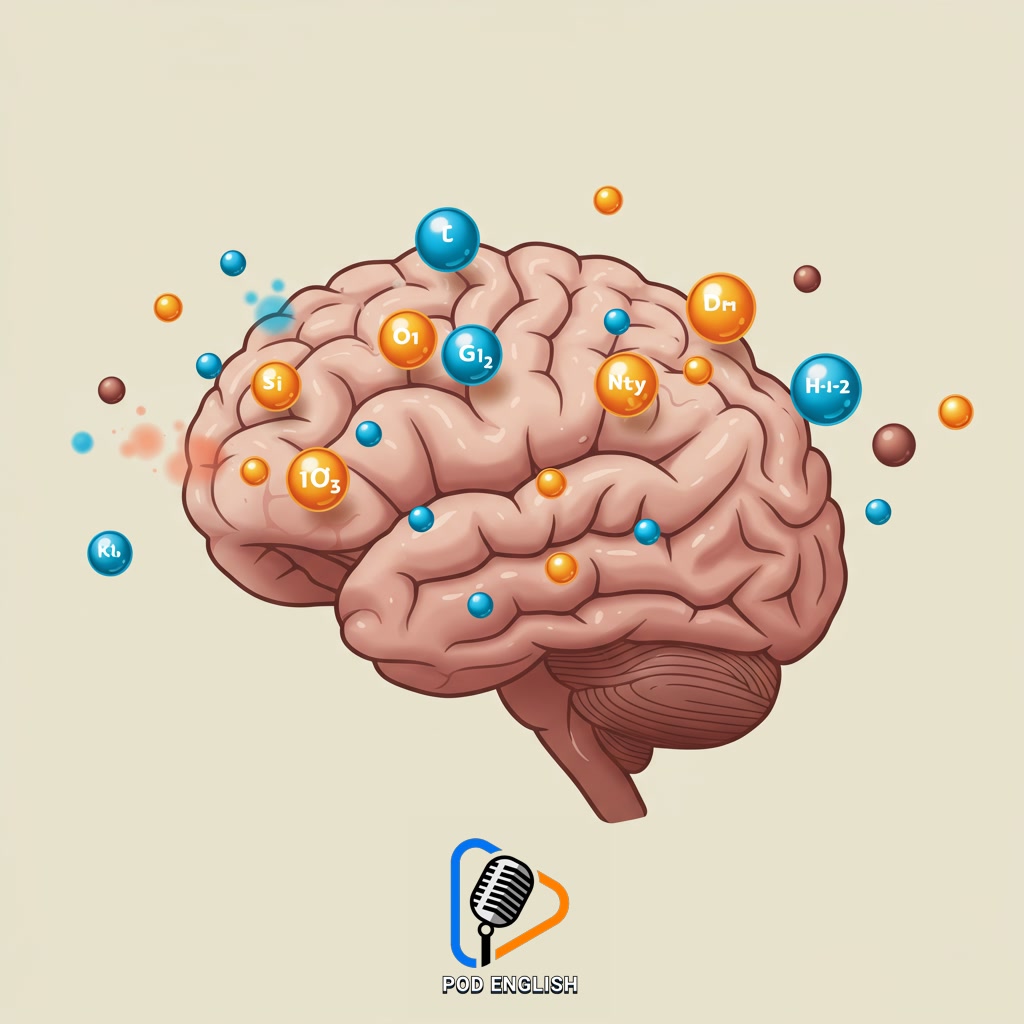
Section 3: How Omega-3s Specifically Enhance Cognitive Functions for Learning English
Building on our understanding of Omega-3s as vital brain nutrients, this section clarifies their specific impact on the cognitive processes essential for mastering English. Omega-3 fatty acids, particularly DHA, are crucial components of brain cell membranes, supporting communication between neurons. For English learners, this means improved memory retention, making it easier to recall new vocabulary, idiomatic expressions, and grammatical rules. Furthermore, Omega-3s can enhance focus and attention span, allowing you to concentrate better during lessons, practice sessions, or while reading English texts. This enhanced cognitive function provides a stronger foundation for processing new information, understanding complex structures, and ultimately accelerating your progress in acquiring the English language.
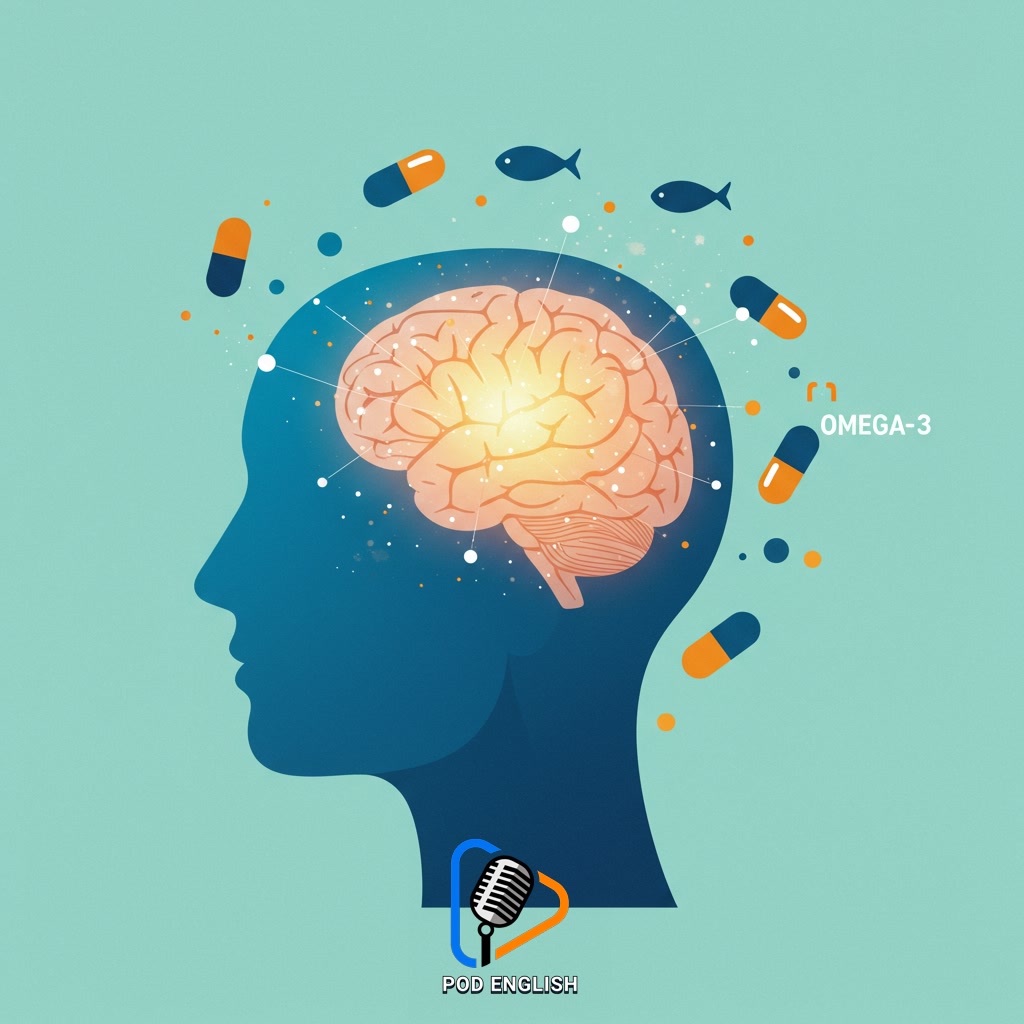
Section 4: Key Benefits: Improved Memory, Focus, and Processing Speed for Language Acquisition
Building on their role as vital brain nutrients, Omega-3 fatty acids significantly enhance cognitive functions crucial for mastering English. Specifically, DHA, a key Omega-3, is a major building block of brain cell membranes, facilitating better communication between neurons. This improved communication directly supports enhanced memory formation and retrieval, making it easier to remember new vocabulary, grammar rules, and complex sentence structures. Furthermore, Omega-3s contribute to improved focus and concentration, helping you stay engaged during study sessions, understand lectures, and absorb information more effectively. They also support faster information processing speed, which is vital for quickly understanding spoken English, responding in conversations, and reading fluently. By optimizing these core cognitive abilities, Omega-3s provide a solid neurological foundation that can significantly accelerate your English learning journey.

Section 5: Incorporating Omega-3s into Your Diet: Sources and Recommendations
Getting enough Omega-3 fatty acids to support your brain and English learning journey is simpler than you might think. The most potent sources, particularly for the beneficial DHA and EPA, are fatty fish like salmon, mackerel, herring, sardines, and anchovies. Aiming for two to three servings of these per week can make a significant difference. If you prefer plant-based options, sources rich in ALA, which your body can convert to DHA and EPA (though less efficiently), include flaxseeds, chia seeds, walnuts, and soybean oil. Incorporating a handful of nuts or seeds into your daily routine, adding them to smoothies or salads, is an easy way to boost your intake. For consistent levels, especially if dietary intake is low, a high-quality fish oil or algae-based supplement can also be considered after consulting a healthcare professional. Ensuring regular Omega-3 intake provides the building blocks your brain needs for optimal function, directly supporting your memory, focus, and language acquisition efforts.
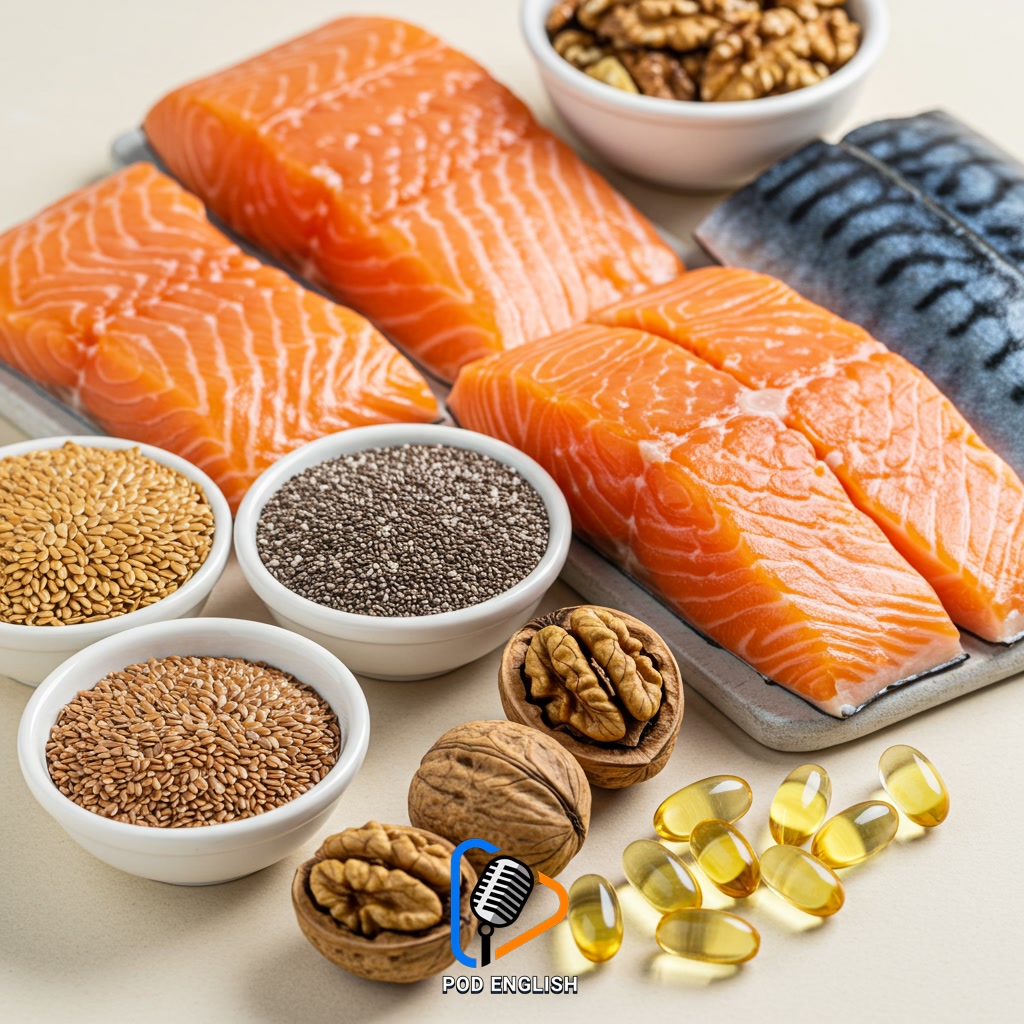
Section 6: Combining Omega-3 Intake with Effective English Learning Strategies
Getting enough Omega-3 fatty acids to support your brain and English learning journey is simpler than you might think. The most potent sources, particularly for the beneficial DHA and EPA, are fatty fish like salmon, mackerel, and sardines. Now, simply consuming Omega-3 isn’t a magic bullet for learning English. The real power comes when you combine this enhanced brain support with proven learning strategies. With improved focus, memory retention, and cognitive flexibility fostered by adequate Omega-3 levels, your active learning efforts become significantly more effective. This means techniques like consistent vocabulary practice, engaging in conversation, using spaced repetition apps, and immersive listening can yield better results. Think of Omega-3 as optimizing your brain’s hardware, making the software (your learning methods) run more efficiently. Integrating these nutritional steps with diligent study habits creates a powerful synergy for mastering English.
